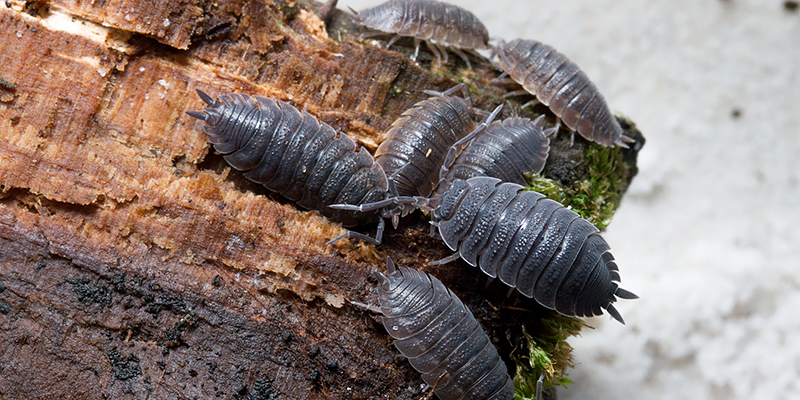Department Aquatic Ecology
Defensive Actinobacteria in freshwater and terrestrial isopods

terrestrial isopod "Porcellio scaber"
Symbiotic associations are widespread across diverse organisms living in both, aquatic and terrestrial environments. All organisms are threatened by pathogens and parasites, which favours evolution of a wide diversity of defences. Such defensive adaptations include the production of secondary metabolites synthesized by animals themselves, or produced by their symbiotic microbes. Actinobacteria, the prime producers of antibiotics, have shown to protect vulnerable life-stages or food sources of insects against pathogenic fungi. However, how widespread these symbiotic interactions are and how a host may benefit from Actinobacteria remain largely unexplored. Isopods are a versatile group of crustaceans occupying deep seas as well as a range of freshwater environments, from surface and groundwater to caves, high mountains, deserts as well as supralittoral zones. Isopods harbour a highly diverse gut microbiome, with environmentally acquired microbes representing a significant source of variation both within and between species. Isopods have been shown to harbour actinobacterial symbionts in their gut, and fungi represent important component of the ingested food as well as their natural habitat. This project tests the role of Actinobacteria-conferred protection against pathogenic fungi in the freshwater isopod Asellus aquaticus and the terrestrial isopod Porcellio scaber.
Key methods: amplicon sequencing of bacterial and fungal communities, in vitro cultivation of microbes and dietary manipulation. This comparative project will set the stage for future investigations using isopods as potential model organisms for cost-effective and large-scale screening of bioactive secondary metabolites.
Funding
Czech Ministry of Education, Youth and Sports (International Mobility of Researchers MSCA-IF IV), and in collaboration with Institute of Soil Biology (Biology Centre CAS, Ceske Budejovice).
Duration
01. November 2020 to 31. October 2022

